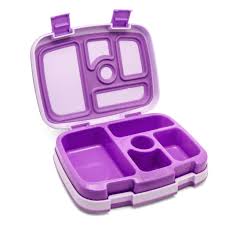The mother was understandably concerned. Her first-grader was a sociable, talkative little girl, and so her teacher’s phone call was certainly disturbing.
This is a true story and took place mere weeks ago in an “out-of-town” community. The teacher, who called just after school had adjourned, recounted how “Leah,” six years old, had seemed ill at ease the entire afternoon. In the morning all had seemed well. But later in the day, although Leah seemed attentive, she was uncharacteristically quiet. So quiet, indeed, the teacher said, that her little student wouldn’t even respond to questions or as much as open her mouth in class. That was very unusual.
Leah’s mother, herself a long-time teacher and someone who, along with her kollelman husband, had wonderfully guided their older children through early childhood, had never before received such a phone call. She was worried, but knew she couldn’t substantively respond to the report before seeing and speaking to Leah herself, and so, with her little one expected home any minute, she thanked the teacher for the “heads up,” and waited for Leah’s arrival.
The teacher, it turned out, had not been imagining things. Leah walked into the house silently, and just retired to the couch, looking uncomfortable. She wouldn’t respond to her mother’s “How was school?” or her subsequent “Is everything alright?”
“If you don’t want to tell me what’s wrong” her wise and gentle mother whispered to her daughter, a precocious child who, even at her tender age, can write full sentences, “Can you write down what’s bothering you?” Leah nodded yes.
Pencil and paper in hand, the girl scribbled away. At lunchtime, she wrote out, she had washed her hands and made the brachah for netilas yadayim. But, then, when she went to her lunchbox, the sandwich she had expected to be there wasn’t! So, she explained, she wasn’t able to speak.
The first feeling that washed over her mother, as one might expect, was relief. Then, after giving Leah a piece of bread on which to make her Hamotzi, she felt pride.
Had Leah been a bit less bashful, she could have hinted to her quandary, or written a note about it, to someone at school and been given some bread. Had she realized that speaking after washing for something pertinent to eating is permitted, she could have solved her problem by just telling her teacher about it.
But, being self-conscious and not knowing that halachic fact, she just chose to do what she felt she had to do to be a good Jew. When the teacher was informed of what had happened, she was deeply impressed. Ditto for me when I heard the story.
We adults often face difficult situations where halachic concerns come up against personal “needs.” We seek, and often find, ways of satisfying both. And then, of course, there are times when there is no seeming reconciliation of the two. What do we do then? Hopefully, the right thing. Leah thought she faced an at least temporarily irreconcilable pair of challenges – wanting to talk but assuming it would be halachically wrong – and, to the best of her understanding, did the right thing. She thereby became a teacher herself.
Dovid Hamelech sang to Hashem that “Out of the mouths of babes and sucklings You have established strength…” (Tehillim, 8:3).
The straightforward p’shat of that passuk is, as per Metzudos Dovid, that the miracle of a human baby and his latent power of speech demonstrates Hashem’s “strength,” or power.
The Gemara (Sotah, 30b) applies the words to how, when our ancestors emerged from the Yam Suf and Hashem’s presence was manifest, even babies and sucklings declared “This is my G-d and I will glorify Him!”
Also implied by Dovid Hamelech’s words is that, as Resh Lakish in the name of Rav Yehudah Nesiah teaches us (Shabbos 119b), the world only perseveres because of the hevel shel tinokos shel beis rabban, “the mouth-breath of the youngsters in their places of study.”
That is usually understood to mean that Torah studied by the purest of souls, children, keeps the universe going. And that is certainly true.
But I’ve often wondered at the word hevel, “mouth-breath.” “Hevel,” in other contexts, means “nothingness.”
The story of Leah’s silence, though, makes me wonder if, perhaps, there are times when even a child’s silence, when it’s an example of how a Jew should see his obligations, can itself be a foundation of Creation.
© 2016 Hamodia

